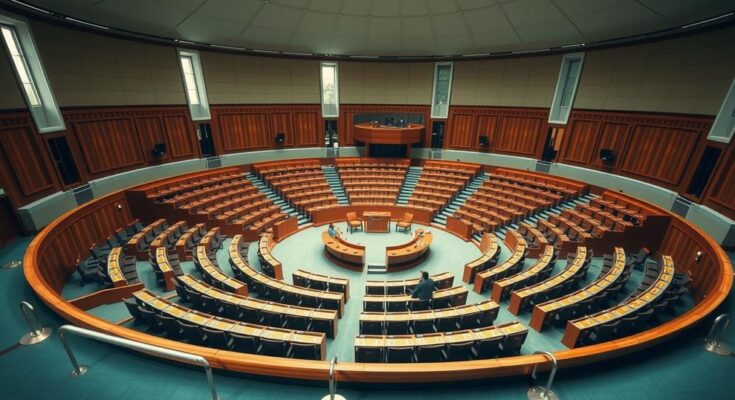Nigerian lawmakers approved President Bola Tinubu’s State of Emergency in Rivers State using voice votes, despite constitutional requirements for a two-thirds majority. Citizens voiced concerns over transparency, as key figures like banker Atedo Peterside and activist Dele Farotimi criticized the voting method. The emergency declaration followed local political conflicts, leading to the suspension of key state officials.
Nigerian lawmakers recently utilized voice votes to approve President Bola Tinubu’s declaration of a State of Emergency in Rivers State. This process raised concerns as Section 305 (6b) of the Nigerian Constitution mandates that such declarations require a two-thirds majority from all members of each House of the National Assembly.
Many citizens hoped for a more transparent voting process, which would reveal the lawmakers who supported the president’s emergency declaration and confirm compliance with constitutional requirements. Prominent banker Atedo Peterside emphasized that, “A two-thirds majority cannot be achieved via a voice vote. Members voting for or against the resolution must identify themselves and cast their votes individually.” Similar sentiments were echoed by activist Dele Farotimi, who criticized the use of voice votes.
Despite the public outcry, the National Assembly, predominantly comprised of members from the ruling All Progressives Congress (APC), proceeded with the voice vote without addressing the concerns raised. After a closed-door session, the Senate and House confirmed the president’s request, citing their majority approval without any public opposition noted, as observed by PREMIUM TIMES.
President Tinubu declared a state of emergency in Rivers following escalating political disputes between the sitting governor, Siminalayi Fubara, and his predecessor, Nyesom Wike. The situation had become precarious, impacting effective governance in the state. Additionally, the president suspended Mr. Fubara, his deputy, and the state legislature for six months, coinciding with the emergency rule.
The use of voice votes by Nigerian lawmakers to approve a State of Emergency in Rivers State has raised significant constitutional concerns. Critics argue that this method contravenes the stipulations of the Nigerian Constitution, which call for a two-thirds majority vote. The lack of transparent voting procedures has resulted in widespread dissatisfaction among citizens and advocates for democracy. The political crisis in Rivers underscores the sensitive nature of governance and the need for accountability within the legislative process.
Original Source: www.premiumtimesng.com




